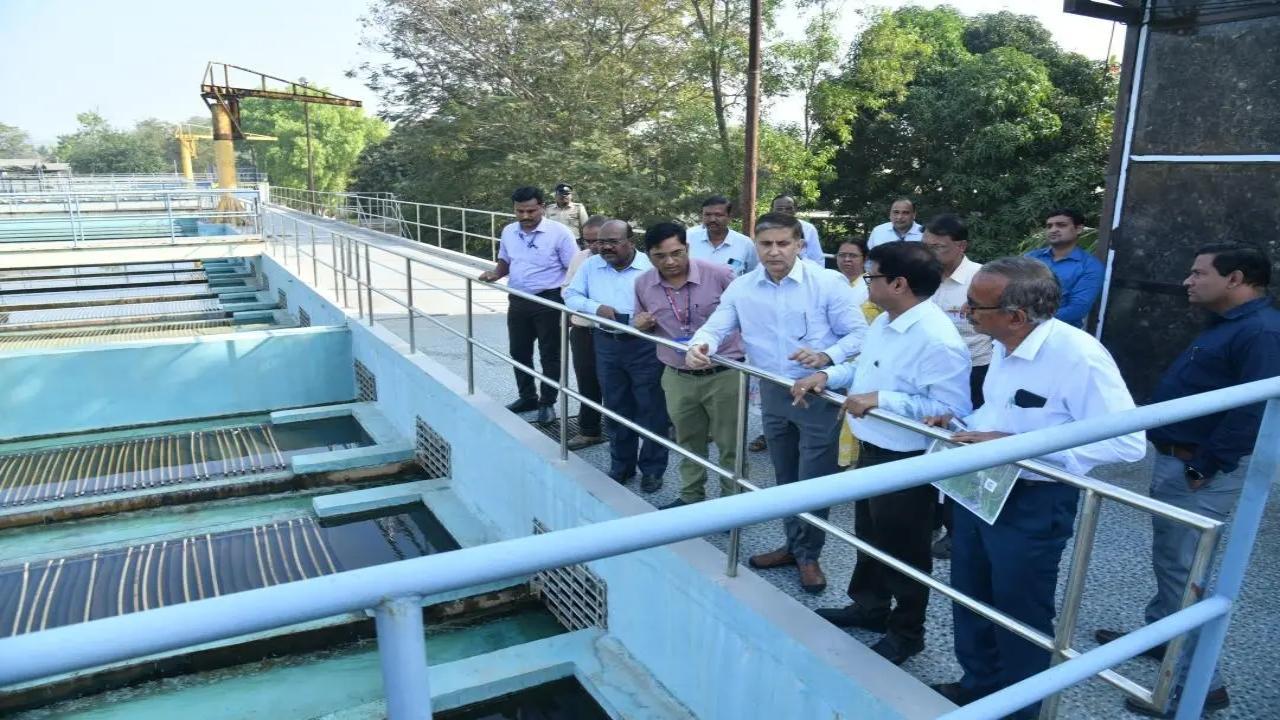Brihanmumbai Municipal Corporation Commissioner Bhushan Gagrani visits the Pise Water Pumping Station and Panjarapur Water Treatment Plant, reviewing operations and acknowledging the contributions of staff in ensuring a reliable water supply for Mumbai.

File Pic
Mumbai’s water supply system, a critical infrastructure that ensures the city’s daily needs, received a detailed inspection today from Brihanmumbai Municipal Corporation (BMC) Commissioner and Administrator, Bhushan Gagrani. His visit took him to two key water management centers: the Pise Water Pumping Station and the Panjarapur Water Treatment Plant, both located in the Thane district, near Bhiwandi.
ADVERTISEMENT
During his visit, Gagrani reviewed the daily operations of these facilities, engaging in discussions with the officials, workers, and staff present. He also conducted an on-site inspection of essential infrastructure, including the electrical sub-stations, dams, purification plants, and water quality monitoring systems, ensuring that everything is functioning smoothly and efficiently.
Gagrani praised the hard work and dedication of the officers, workers, and employees involved in providing uninterrupted, clean water supply to Mumbai, acknowledging their vital role in sustaining the city’s water needs.
The inspection was accompanied by Water Engineer Shri Purushottam Malwade and other concerned officials, who were present to provide updates on the operations and progress of the various projects in place.
Mumbai's water woes: Four months' worth of water just disappears!
The Brihanmumbai Municipal Corporation (BMC) claims that non-revenue water (NRW), which refers to water losses, has decreased from 38 per cent to 34 per cent over the past two years. However, this still equates to losing the equivalent of four months’ worth of water supply. Ideally, the loss rate should not exceed 15 per cent of the total supply.
NRW encompasses water that is supplied but not paid for, including losses from leakage, unbilled water, illegal connections, faulty water meters, and inaccurate readings. Of the 3,950 million litres of water received daily, 1,500 million litres were lost—a significant amount.
“The NRW has been reduced by 4 per cent through various initiatives, such as replacing aging pipelines with new tunnels and upgrading water pipelines to reduce leaks. The BMC is also using advanced technology to detect leaks in underground pipes,” added Malavade. The BMC claims that complaints about water contamination have decreased over the years. According to the BMC, water contamination levels are below 0.3 NTU (Nephelometric Turbidity Unit, which measures suspended particles in water), and residual chlorine levels are at 0.2 ppm
Mumbai has a water supply network spanning over 5,000 km. Water from the city’s 27 balance reservoirs is distributed to 3.89 lakh customers through this extensive network, excluding an additional 800 km of water tunnels and large pipelines that bring water from dams to treatment plants and then to the reservoirs.
 Subscribe today by clicking the link and stay updated with the latest news!" Click here!
Subscribe today by clicking the link and stay updated with the latest news!" Click here!







